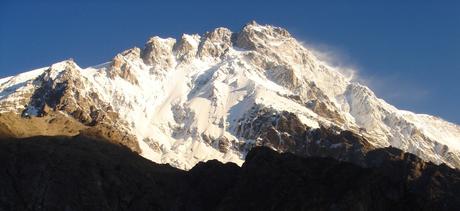 When it comes to mountaineering, second guessing is often a sport unto itself. Such is the case with the recent tragedy on Nanga Parbat, where Polish climber Tomek Mackiewicz lost his life, but a team of climbers on K2 risked their own to rescue French alpinist Elisabeth Revol. But now that the dust has settled, and the operation is being examined, Revol herself is lashing out at authorities in Pakistan, which she says didn't do enough to help save her friend.
When it comes to mountaineering, second guessing is often a sport unto itself. Such is the case with the recent tragedy on Nanga Parbat, where Polish climber Tomek Mackiewicz lost his life, but a team of climbers on K2 risked their own to rescue French alpinist Elisabeth Revol. But now that the dust has settled, and the operation is being examined, Revol herself is lashing out at authorities in Pakistan, which she says didn't do enough to help save her friend.
In an interview conducted on Wednesday, Revol said that she feels a lot of anger over the situation. She believes that Mackiewicz could have been saved had officials in Pakistan worked faster and been more forthright in their actions. The French climber says that she sent out an SOS to her husband, Tomek's wife, and Ludovic Giambiasi, who was helping coordinate the expedition from back home. Those three jumped into action to try to get help for Revol and Mackiewicz, but were met with resistance and stalling on the part of the Pakistanis.
Perhaps the most disturbing element to the story is how the Pakistani helicopter rescue team began negotiating the price of starting the operation. According to reports, they initially wanted $15,000 to fly to Nanga Parbat to rescue Elisabeth and Tomak. But as things progressed, that price rose to $40,000 in cash and in advance, before the flight would ever leave the ground.
It should be also noted that while high altitude rescues have become fairly common on Everest and other big Nepali peaks, in Pakistan they remain fairly rare. The pilots and SAR teams don't have much experience conducting such operations, which also makes them hesitant to go too high. Tomek was stranded at 7200 meters (23,622 ft), while Revol was told to descend down to 6300 meters (20,669 ft) to meet a rescue team. When she did that however, no one arrived to lend a hand and she was forced to spend another night exposed to the elements in a crevasse. This eventually led to her pulling her boots off while hallucinating, causing severe frostbite. Knowing these circumstances, it is easy to understand why Elisabeth feels such anger. She says that she only left Tomek behind because she was instructed to do so and was told that rescuers would go up to retrieve him. Obviously now she feels regret at that decision, although it most likely saved her life in the long run.
Considering the description of the symptoms that Tomek was experiencing at the time, it seems unlikely that he was going to survive the expedition after making a late summit, but spending a night in a crevasse. Revol says that when she woke up the next morning, Mackiewicz was bleeding from the mouth and was unconscious, sure signs of altitude sickness. Unable to move himself, she really had no choice but to descend, and the hard reality is that her companion was quite possibly too far gone at that point regardless.
On the other hand, the fact that another 24 hours passed before anyone came to help leaves room to wonder. Had the Pakistanis reacted much more quickly, could they have saved Tomek too? For their part, the Polish team from K2 put in a heroic effort, climbing as fast as humanly possible considering the terrain and altitude. In the end though, poor weather moved in preventing them from going any higher.
The entire situation will no doubt spur a lot of debate within the mountaineering community. In the end, we'll never know for sure, but it is clear that if you're climbing in Pakistan it is important to understand all of the risks you could face.

